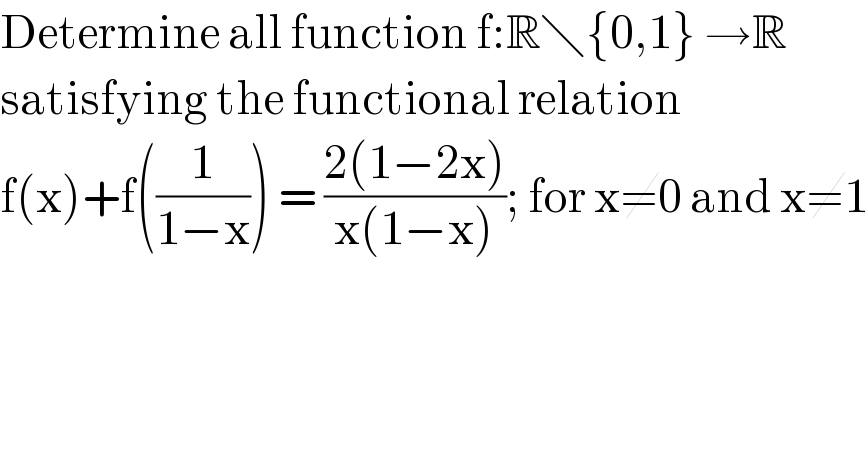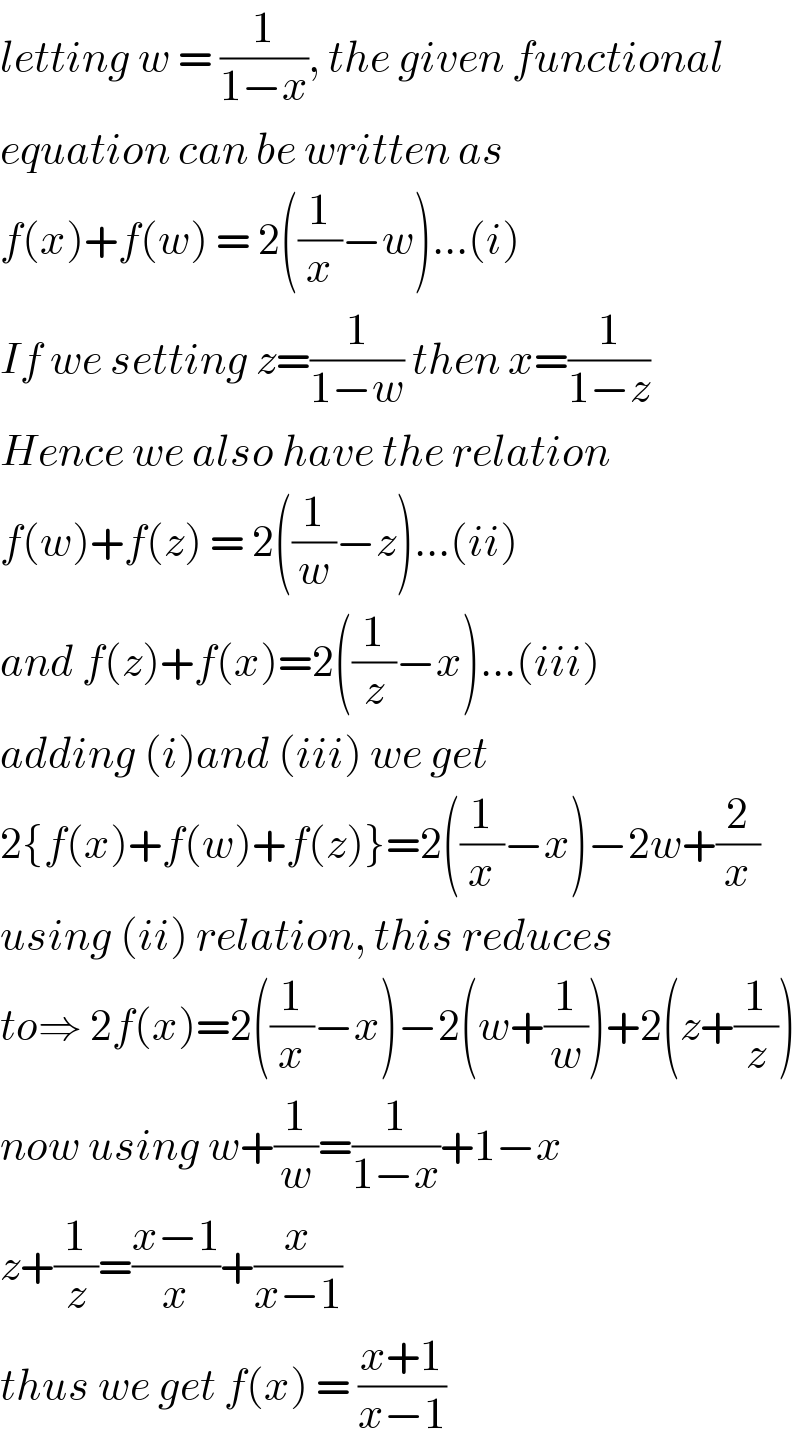Question Number 118150 by bobhans last updated on 15/Oct/20

Commented by bemath last updated on 15/Oct/20

Answered by bemath last updated on 15/Oct/20

Answered by bobhans last updated on 15/Oct/20
![(1)replacing (1/(1−x)) by x , gives f(((x−1)/x))+f(x) = ((2(1−2(((x−1)/x))))/((((x−1)/x))(1−(((x−1)/x))))) f(((x−1)/x))+f(x)=((2x(2−x))/((x−1))) (2)replacing x by (1/(1−x)) f((1/(1−x)))+f((1/(1−((1/(1−x))))))=((2(1−2((1/(1−x)))))/(((1/(1−x)))(1−((1/(1−x)))))) f((1/(1−x)))+f(((x−1)/x))=((2(1−x)(1+x))/x) now we have (1)f(x)+f((1/(1−x))) = ((2−4x)/(x−x^2 )) (2)f(((x−1)/x))+f(x)=((4x−2x^2 )/(x−1)) (3)f((1/(1−x)))+f(((x−1)/x))=((2−2x^2 )/x) adding(1),(2)and(3) we get 2[ f(x)+f((1/(1−x)))+f(((x−1)/x)) ]= ((−4x^3 +6x^2 +6x−4)/(x^2 −x)) or f(x)+f((1/(1−x)))+f(((x−1)/x))=((−2x^3 +3x^2 +3x−2)/(x^2 −x)) substitute third equation , gives f(x) = ((−2x^3 +3x^2 +3x−2)/(x^2 −x))−((2−2x^2 )/x) f(x)= ((−2x^3 +3x^2 +3x−2−(2x−2−2x^3 +2x^2 ))/(x^2 −x)) f(x) = ((x^2 +x)/(x^2 −x)) = ((x+1)/(x−1)).](https://www.tinkutara.com/question/Q118159.png)
Commented by bemath last updated on 15/Oct/20

